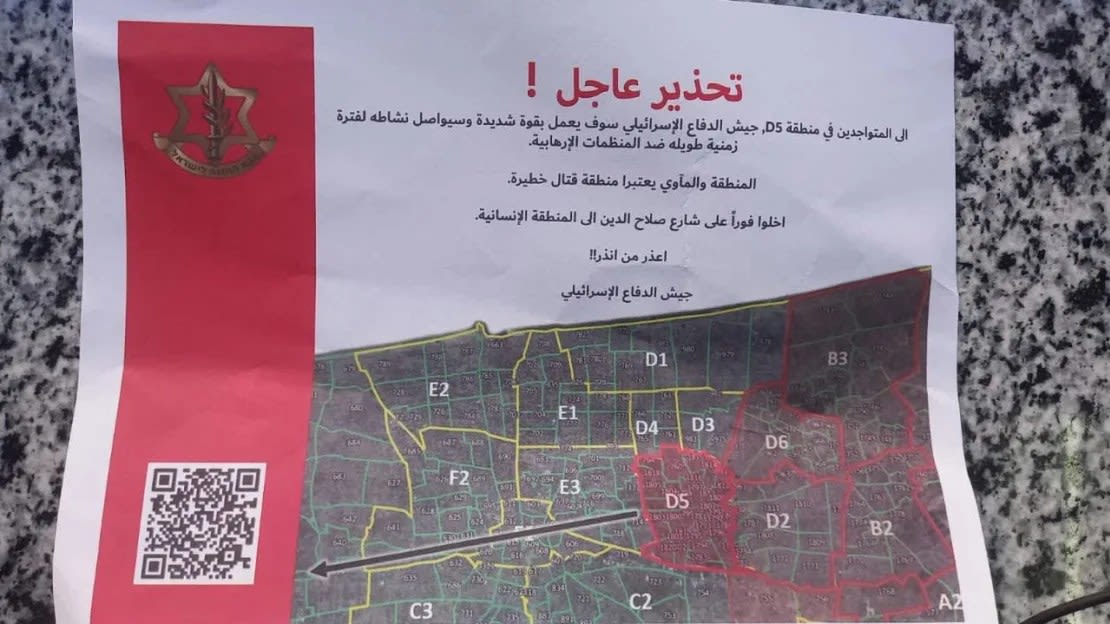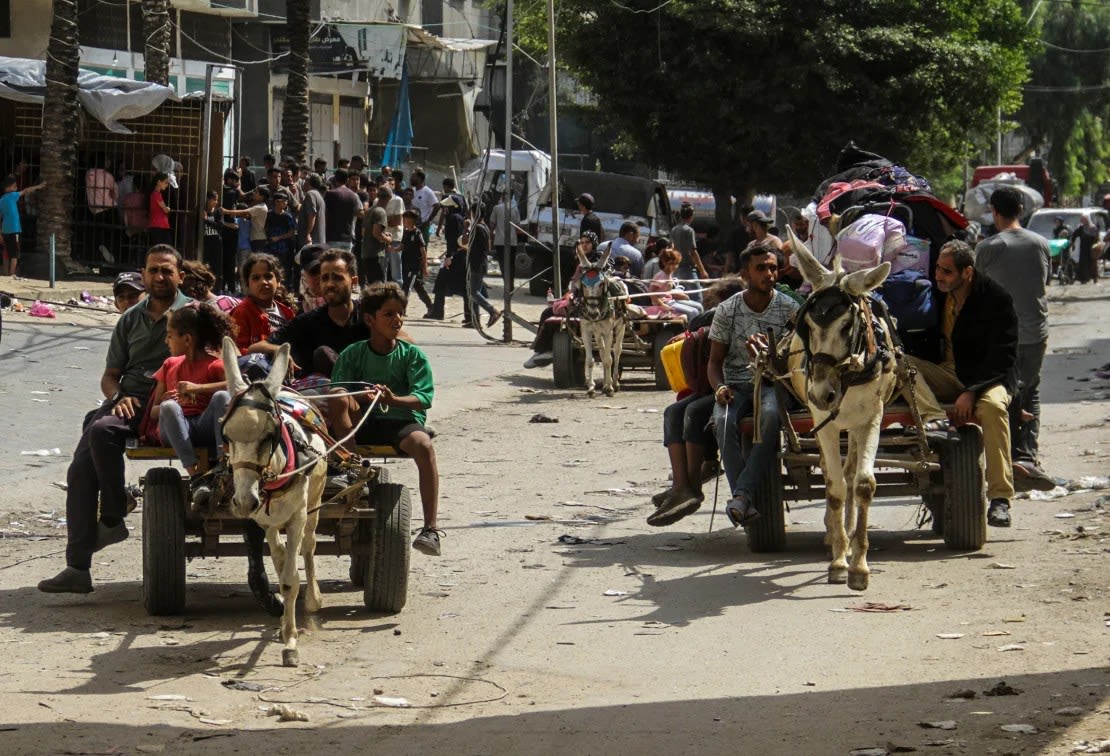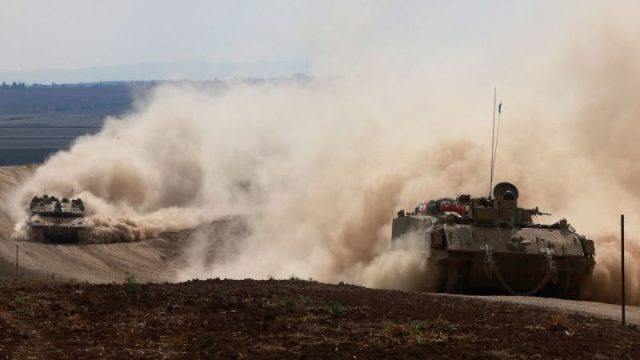(CNN) – Israeli forces are conducting a large-scale operation in northern Gaza, issuing evacuation orders and withholding food supplies. The military operation intensified weeks after reports emerged that Prime Minister Benjamin Netanyahu was considering a plan to blockade the area to pressure Hamas to release hostages.
This week, the Israel Defense Forces (IDF) launched the operation after receiving intelligence that “shows the presence of terrorists and terrorist infrastructure in the Jabalya region of northern Gaza, as well as efforts by a section of Hamas to rebuild its operational capabilities in the area.”
In practice, the attack has gone beyond the Jabalya refugee camp.
Four sources told CNN that the Israeli cabinet did not accept the blockade plan put forward by retired general Giora Eiland. However, the current move is similar to the plan Eiland presented in a public video, and in private before the Israeli cabinet and Israel’s parliament, the Knesset.
A former senior military officer familiar with the thinking of Israeli government and defense chiefs — though not directly involved in the decision — told CNN that the cabinet accepted a “version” of Eiland’s proposal, known as the “Generals’ Plan.” . Eiland confirmed to CNN that claim is “very true,” though he noted that there are significant differences between his proposal and implementation on the ground.
Last month, Eiland proposed evacuating all civilians from northern Gaza – including Gaza City – and then cutting off all supplies to the region. He said he wanted to restart the war and undermine the account of Hamas leader Yahya Shinwar. “The reality in Gaza today is that Sinwar is not really under stress,” he said in a video released at the time.
Speaking to CNN, a former military official said, “The idea (of the government) to do more in Gaza to change Sinwar’s way of thinking. It was accepted that (the project) could not in any way be regarded as a violation of international law.
Eiland’s proposal does not include a plan to allow Gazans to return to northern Gaza, retired Major General Gershon Hacohen, who worked on its development, told CNN. Charges of ethnic cleansing may have been made in that situation, which have already been raised by scholars such as Omar Bartov, an Israeli professor of genocide studies and genocide studies at Brown University in Rhode Island.
Eiland told CNN in a text message that the cabinet was “acting on my recommendation with the objective of actually taking control of northern Gaza; I also recommended a blockade (after evacuating civilians) and a halt to entry into the area. “None of this happened.”
On Monday, the Israeli military’s Arabic-language spokesman ordered all Palestinians in the northern Gaza Strip — Beit Hanoun, Jabalya and Beit Lahia — to move to Al Mawazi, an Israeli-declared “humanitarian” area in southern Gaza. under intense aerial bombardment for months.
This Saturday, the army added additional mandatory evacuation zones, posting leaflets and X, ordering people to leave the Nazla area and several Jabalya areas.
Avichai said at Adre X that the army “has been acting with great vigor against terrorist organizations and will continue to do so for a long time to come”. “You must immediately evacuate the area via Salah al-Din Street towards the humanitarian zone.”

Food supplies in northern Gaza, already in short supply, appear to have come to an almost complete halt since the Israeli army launched its renewed operation this week. The World Food Program told CNN on Friday that no food trucks have entered northern Gaza since the beginning of the month.
“Virtually the entire area is under evacuation orders, and thousands of families have been forced to leave amid intense airstrikes and military operations on the ground,” WFP said in a statement on Wednesday. “With key aid crossings in northern Gaza closed and WFP-affiliated kitchens forced to close, WFP will no longer be able to distribute food to needy families in any way.”
CNN asked the IDF about blocking aid deliveries.
Netanyahu told a closed-door Knesset committee last month that the generals’ plan “makes a lot of sense,” according to CNN affiliate Khan. He said it was one of many ideas being considered to change the course of the war in Gaza, now in its second year.
Palestinians in northern Gaza say they have witnessed some of the most intense military operations of the war this week. Wary of repeated orders last year to move into the besieged parts of Gaza, many are defying those orders. “Anyone who wants to leave the north and go to Gaza wants death,” Jabalya resident Mohammed Ibrahim told CNN by phone this week.
Residents and videos documenting their journey have been shared with CNN as Palestinians fleeing the new operation are attacked as they leave. CNN has contacted the IDF for comment.
“The besieged people are not even getting the necessities of life,” Ibrahim said. “There is no safe drinking water, no adequate or healthy food, no medicine, no treatment, no hospitals. They work at minimum capacity and are tired. Even safe places are hit by bombs and rockets.

Dr. Husam Abu Saifia, director of Kamal Adwan Hospital in northern Gaza, said on Tuesday that medical staff and patients had been told by the Israel Defense Forces (IDF) to evacuate the hospital “within 24 hours.” He was not told where to go, he said. Al Awda and Indonesian hospitals have also been ordered to evacuate, according to local officials. According to the hospital officials, it is not possible to leave safely due to intense Israeli bombardment in the area.
Meanwhile, seven attempts by the World Health Organization this week to reach northern Gaza were “rejected or blocked,” Director-General Dr. Tedros Adhanom Ghebreyesus said Thursday.
“The medical team was unable to carry out medical evacuation from Kamal Adwan, Al-Awda and Indonesian hospitals to Al-Ahli and Al-Shifa, due to a delay of more than 10 hours at the checkpoints,” he said in a statement on X.
CNN’s Eugenia Yosef, Abeer Salman and Eyad Kourdi contributed to this report.





